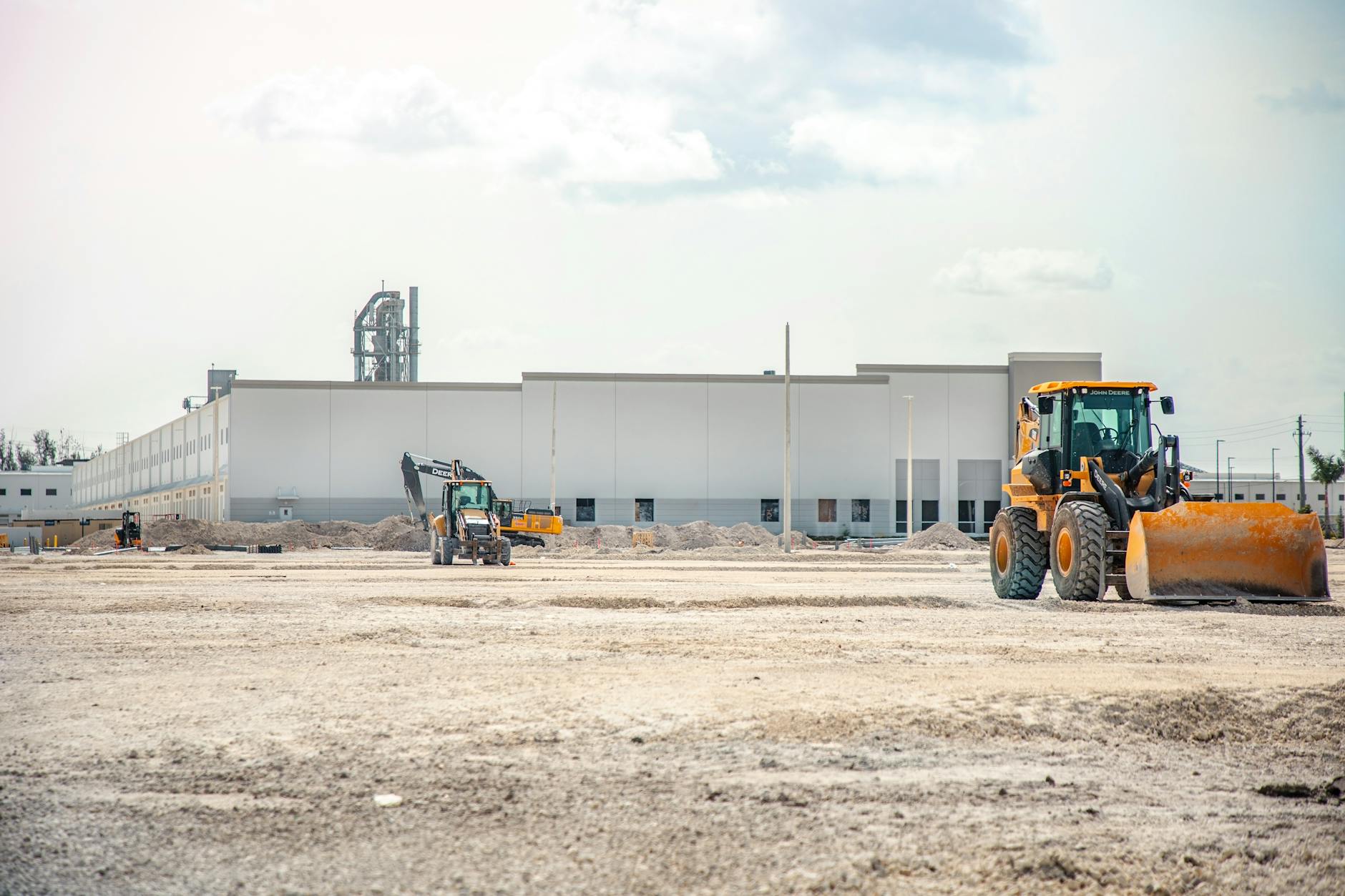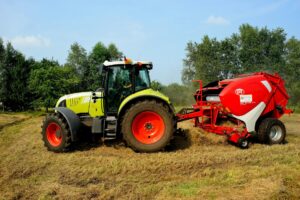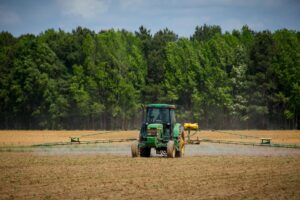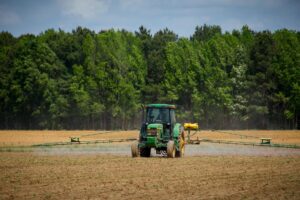Industrial tractors are indispensable in heavy-duty applications across construction, manufacturing, and large-scale material handling. Unlike agricultural tractors, industrial models are specifically designed for durability, stability, and the capacity to handle a wide range of challenging tasks in rugged environments. Choosing the right industrial tractor involves understanding the key features and specifications that define their performance, efficiency, and versatility. This comprehensive guide will explore the critical factors to consider when selecting an industrial tractor.
What Are Industrial Tractors?
Industrial tractors are powerful, heavy-duty machines engineered for non-agricultural applications. These tractors are often equipped with reinforced frames, specialized tires, and robust hydraulic systems to accommodate demanding workloads. Their primary uses include:
- Material handling and transportation.
- Operating attachments like loaders, forklifts, and trenchers.
- Site preparation and earthmoving.
- Road and infrastructure maintenance.
Key Features to Consider in Industrial Tractors
When evaluating industrial tractors, these key features can help you determine the right model for your needs:
1. Engine Power and Torque
The engine is the heart of any industrial tractor, and its power determines the machine’s capability to handle heavy loads and demanding tasks.
- Horsepower (HP): Industrial tractors typically range from 50 HP to over 300 HP.
- Lower HP models (50–100 HP): Suitable for lighter applications like material handling.
- Higher HP models (100+ HP): Ideal for earthmoving, construction, and large-scale operations.
- Torque: A high-torque engine ensures consistent performance under heavy loads, especially in challenging terrain or when operating high-capacity implements.
2. Transmission System
The transmission system controls how power is delivered from the engine to the wheels, affecting performance, fuel efficiency, and ease of use.
- Manual Transmission: Provides precise control but may need more skill to operate.
- Hydrostatic Transmission (HST): Offers smooth, infinite speed adjustments and is ideal for tasks requiring frequent direction changes.
- Power Shuttle Transmission: Allows seamless shifting between forward and reverse gears, enhancing productivity during repetitive tasks like loading and dumping.
- Continuously Variable Transmission (CVT): Combines efficiency with smooth operation, offering superior performance for heavy-duty tasks.
3. Hydraulics and Lifting Capacity
Industrial tractors rely on advanced hydraulic systems to operate implements like loaders, backhoes, and cranes.
- Hydraulic Flow Rate (Gallons Per Minute, GPM): Determines the speed and efficiency of hydraulic functions. A higher flow rate is essential for operating heavy-duty attachments.
- Lifting Capacity: Measured at the loader and three-point hitch, lifting capacity indicates how much weight the tractor can handle safely. Industrial models often feature high-capacity loaders and reinforced hitches for demanding applications.

4. Tires and Traction
Tires play a significant role in determining a tractor’s performance on different surfaces and terrains.
- Industrial Tires (R4): Designed for durability and traction on hard surfaces like concrete, gravel, and packed soil.
- Specialized Tires: Some industrial tractors come with custom tires for specific tasks, such as non-marking tires for indoor use in warehouses.
- Four-Wheel Drive (4WD): Essential for enhancing traction in muddy, uneven, or loose terrain.
5. Attachments and Versatility
The ability to use many attachments makes industrial tractors highly versatile. Common attachments include:
- Front-End Loaders: Ideal for lifting and transporting materials.
- Backhoes: Used for digging and trenching.
- Forklifts: Essential for material handling in warehouses and construction sites.
- Sweepers: Useful for site cleaning and road maintenance.
Ensure the tractor you choose is compatible with the attachments required for your operations.
6. Frame and Build Quality
Industrial tractors are subjected to extreme working conditions, so durability is a top priority.
- Reinforced Frames: Look for models with heavy-duty steel frames that can withstand stress and impact.
- Operator Protection: Features like roll-over protection structures (ROPS) and falling object protective structures (FOPS) ensure safety in hazardous environments.
7. Ergonomics and Operator Comfort
Comfort is crucial for maintaining productivity during long work hours. Modern industrial tractors offer features that enhance operator experience:
- Air-Conditioned Cabs: Protect operators from harsh weather conditions.
- Adjustable Seats: Reduce fatigue with ergonomic seating options.
- Intuitive Controls: Simplified and strategically placed controls make operation easier and more efficient.
- Noise Reduction: Insulated cabs minimize noise levels, contributing to a more comfortable working environment.
8. Technology and Automation
Advancements in technology have transformed industrial tractors into high-tech machines that optimize efficiency and reduce operator workload.
- GPS and Precision Control: Enables automated navigation and precision operations for tasks like grading and site preparation.
- Telematics: Provides real-time monitoring of engine performance, fuel usage, and maintenance schedules.
- Autonomous Features: Some industrial tractors offer semi-autonomous or fully autonomous capabilities for repetitive tasks.
9. Fuel Efficiency and Emissions
Fuel consumption and emissions standards are crucial considerations, especially for large-scale operations.
- Eco-Friendly Engines: Look for models that follow Tier 4 or Stage V emission standards. These engines reduce environmental impact while maintaining performance.
- Fuel Tank Capacity: Larger tanks cut downtime by reducing the need for frequent refueling.
10. Maintenance and Support
Industrial tractors are significant investments, so access to reliable maintenance and support is essential.
- Ease of Maintenance: Features like accessible engine compartments and tool-free filter replacement simplify routine maintenance.
- Dealer Network: Choose a brand with a robust dealer network to ensure access to spare parts and servicing.
Top Brands for Industrial Tractors
When choosing an industrial tractor, consider trusted brands known for their reliability and performance. Here are some leading manufacturers:
1. Caterpillar (CAT)
- Known for durable construction equipment.
- Offers a wide range of industrial tractors with advanced features.
2. John Deere
- Combines high-tech features with exceptional build quality.
- Extensive dealer network ensures reliable support.
3. Kubota
- Provides compact yet powerful models ideal for diverse industrial tasks.
- Focuses on fuel efficiency and operator comfort.
4. Case IH
- Renowned for heavy-duty tractors with advanced hydraulic systems.
- Excellent for construction and material handling.
5. Mahindra
- Offers cost-effective models without compromising on performance.
- Focuses on durability and versatility.
Selecting the Right Industrial Tractor for Your Needs
To find the best industrial tractor, follow these steps:
- Assess Your Tasks: Identify the primary applications—loading, digging, transporting, or grading—and focus on the necessary features.
- Consider Your Environment: Test the terrain, space constraints, and working conditions.
- Set a Budget: Balance initial costs with long-term maintenance and operating expenses.
- Test Models: Visit dealers to test-drive models and check their performance, comfort, and ease of operation.
- Research Reviews: Look for user reviews and testimonials to gauge the tractor’s reliability and suitability for your needs.
Conclusion
Industrial tractors are versatile powerhouses designed to tackle the toughest jobs in construction, manufacturing, and beyond. By focusing on key features such as engine power, hydraulics, tires, attachments, and operator comfort, you can select a machine that aligns perfectly with your operational needs.
Whether you’re lifting heavy loads, digging trenches, or maintaining roads, investing in the right industrial tractor ensures productivity, safety, and efficiency. With careful consideration and thorough research, you can find the perfect model to meet your requirements and take your operations to the next level.


